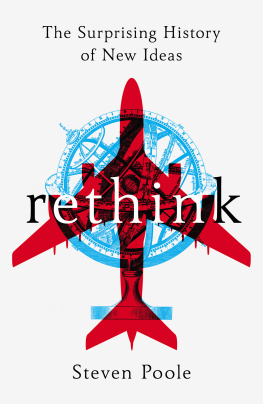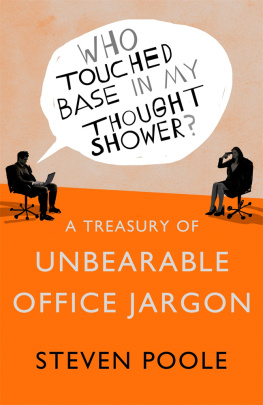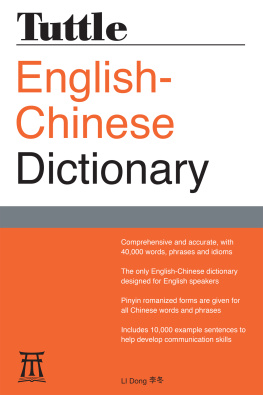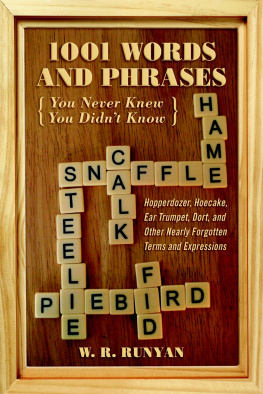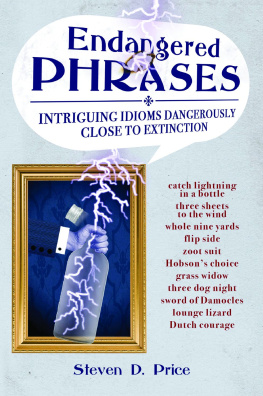Unspeak
Unspeak
How Words Become Weapons,
How Weapons Become a Message, and
How That Message Becomes Reality
STEVEN POOLE

Copyright 2006 by Steven Poole
All rights reserved. No part of this book may be reproduced in any form or by any electronic or mechanical means, or the facilitation thereof, including information storage and retrieval systems, without permission in writing from the publisher, except by a reviewer, who may quote brief passages in a review. Any members of educational institutions wishing to photocopy part or all of the work for classroom use, or publishers who would like to obtain permission to include the work in an anthology, should send their inquiries to Grove/Atlantic, Inc., 841 Broadway, New York, NY 10003.
First published in Great Britain in 2006 by Little, Brown, an imprint of Time Warner Book Group UK, London
Printed in the United States of America
FIRST AMERICAN PAPERBACK EDITION
The publishers are grateful for permission to reproduce extracts from the following: Politics in the English Language by George Orwell (Copyright George Orwell, 1946) by permission of Bill Hamilton as the Literary Executor of the Estate of the Late Sonia Brownell Orwell and Seeker & Warburg Ltd; The Analects by Confucius, translated with an introduction by D.C. Lau (Penguin Classics, 1979). Copyright D.C. Lau, 1979; State to High Court: Fence Route Determined Not Only By Security Considerations, by Yuval Yoaz, that appeared in Haaretz. Copyright Haaretz, 2005; Without a Doubt by Ron Suskind, article in the New York Times, 2004, courtesy The Wylie Agency; The Language of the Third Reich by Victor Klemperer, translated by Martin Brady, 2000, courtesy Continuum Publishing. Every effort has been made to trace copyright holders in all copyright material in this book. The publisher regrets any oversight and will be pleased to rectify any omission in future editions.
Library of Congress Cataloging-in-Publication Data
Poole, Steven, 1972
Unspeak : how words become weapons, how weapons become a message, and how that message becomes reality / Steven Poole.
p. cm.
Includes bibliographical references and index.
eBook ISBN-13: 978-1-5558-4872-9
1. Language and languagesPolitical aspects. I. Title.
P119.3.P658 2006
306.44dc22 2006040054
Grove Press
an imprint of Grove/Atlantic, Inc.
841 Broadway
New York, NY 10003
Distributed by Publishers Group West
www.groveatlantic.com
Contents
1
Introduction
A long time ago in China, a philosopher was asked the first thing he would do if he became ruler. The philosopher thought for a while, and then said: well, if something had to be put first, I would rectify the names for things. His companion was baffled: what did this have to do with good government? The philosopher lamented his companions foolishness, and explained. When the names for things are incorrect, speech does not sound reasonable; when speech does not sound reasonable, things are not done properly; when things are not done properly, the structure of society is harmed; when the structure of society is harmed, punishments do not fit the crimes; and when punishments do not fit the crimes, the people dont know what to do. The thing about the gentleman, he warned, is that he is anything but casual where speech is concerned. The philosophers name was Confucius, and he was referring to a phenomenon that is all around us today. He was talking about Unspeak.
Lets see how it works. What do the phrases pro-choice, tax relief, and Friends of the Earth have in common? They are all names that also contain political arguments, in a way that alternative names say, opposed to the criminalisation of abortion, tax reduction, or a group of environmental campaigners do not.
Campaigners against abortion had from the early 1970s described their position as defending a right to life. The The phrase pro-life appeals to a sacred concept of life, and casts ones opponents those who think abortion should be legally available necessarily as anti-life, in fact pro-death. In a conceptual battle of two moral ideals, life easily wins out over choice.
To talk of tax relief, meanwhile, is already to take a position on socially desirable levels of taxation. One is relieved of a load, or a pain, or an illness. In 2004, the White House website advertised the Working Families Tax Relief Act with a peculiar little animation, in which white bars zoomed out across the screen, accompanied by a whooshing metallic sound effect. Tax relief was thus pictured dynamically as like being released from prison. So, even before you start having a debate about tax levels, the phrase tax relief already contains an argument that tax should be minimised whenever possible. Tax relief goes hand in hand with a similar name for what it seeks to reduce: the tax burden, which describes something while already arguing that it should be as low as possible. After all, no one likes a burden.
Friends of the Earth is a network of environmental groups in seventy countries. The name efficiently consigns anyone who disagrees with their specific policies to the category of Enemy of the Earth. An enemy of the earth must be a very nasty sort of person indeed, a sci-fi villain like Ming the Merciless. Moreover, the claim that the Earth is the sort of thing you can be friends with smuggles in a further holistic concept of the entire planet as a living organism: a Gaia theory, which carries a large implicit cargo of policy implications.
Each of these terms, then pro-life, tax relief, Friends of the Earth is a name for something, but not a neutral name. It is a name that smuggles in a political opinion. And this is done in a remarkably efficient way: a whole partisan argument is packed into a sound bite. These precision-engineered packages of language are launched by politicians and campaigners, and targeted at newspaper headlines and snazzy television graphics, where they land and dispense their payload of persuasion into the public consciousness.
Words and phrases that function in this special way go by many names. Some writers call them evaluative-descriptive terms. I will call them Unspeak.
Double or nothing
Why the name Unspeak? It is an attempt to capture the Janus-like nature of such language. On the one hand, a phrase like pro-life carries with it a whole unspoken argument that a foetus should be considered a person; that life must be preserved in all situations that it does not set out explicitly. It represents an attempt to say something without saying it, without getting into an argument and so having to justify itself. At the same time, it tries to unspeak in the sense of erasing, or silencing any possible opposing point of view, by laying a claim right at the start to only one way of looking at a problem: in terms of life rather than choice, or in terms of tax as something to be relieved rather than, say, a way of contributing to society. Now, all language does both of these things to some extent. Every word arrives at the ear cloaked in a mist of associations and implications; and every choice of a particular word represents a decision not to use another one. But Unspeak deliberately amplifies and exploits these properties of language for political motives.
The word Unspeak also inevitably recalls the vocabulary of George Orwells novel Nineteen Eighty-Four, specifically the Newspeak of his totalitarian society. But Newspeak was a cruder tool of manipulation. By erasing words from the lexicon, Newspeak made old, troublesome concepts literally unthinkable. Its B Vocabulary, meanwhile, consisted of words which had been deliberately constructed for political purposes often crude euphemisms, such as joycamp for forced-labour camp. (In fact, the existing phrase concentration camp already did the same thing somewhat more subtly: people in concentration camps, after all, did not sit around in tents playing chess or writing poetry. That phrase originated as a British euphemism for its own practices in South Africa. Language that was originally used by the perpetrators of violence in order to justify it became the normal term: a pattern that we will see repeated in Chapter Four.) But Unspeak does not need to burn dictionaries or invent totally new words to accomplish a similar task. As an Unspeak phrase becomes a widely used term of public debate, it tends to saturate the mind with one viewpoint and to make an opposing view ever more difficult to enunciate.
Next page

